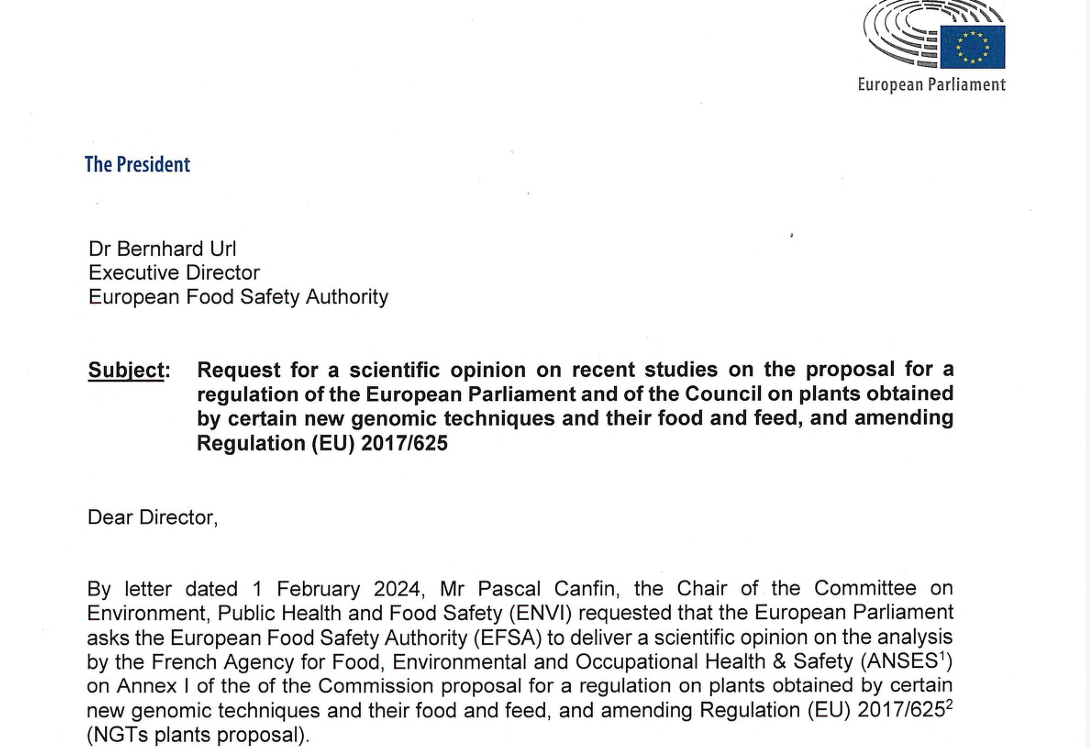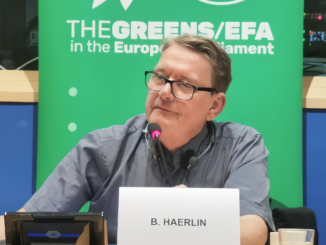
The EU’s food safety agency will put together a new opinion on the categorisation of new genomic techniques – NGT’s – (also called new GMOs or gene editing) on the request of the European Parliament, following reports from multiple national agencies calling into question the scientific validity of the proposed criteria.
This new scientific opinion has been requested to “better inform the work of the European Parliament on the proposal,” according to a letter, seen by ARC, sent by European Parliament President Roberta Metsola to Executive Director of the EU’s food safety authority, EFSA.

The EU’s proposal to loosen rules on the use of NGTs is currently working its way through the legislative process. The term describes several scientific methods used to alter genomes and genetically engineer certain traits into plants.
The idea put forward in the Commission’s proposal – and since backed by lawmakers in the Parliament – is to separate NGT plants into two different streams, and thus two different approval paths.
NGT plants considered equivalent to conventional ones (so-called ‘NGT 1’ plants) would be exempted from the requirements of the EU’s GMO legislation, while category 2 NGT plants would still have to follow stricter requirements.
But the scientific basis of this categorisation has been called into question in recent weeks following the publication of reports from multiple national agencies, including the French health agency ANSES and the German Federal Agency for Nature Conservation (BfN), both of which concluded that there is no scientific basis for this criteria.
On the back of the publication of these reports, the European Parliament considers it “opportune to request EFSA to draw a scientific opinion on the analysis by ANSES,” the letter reads, echoing previous calls from the chair of the European Parliament’s environment committee, Pascal Canfin.
The letter requests that this opinion should be ready by July 2024.
Contacted by ARC, a representative of EFSA confirmed that they had received the request and will start work on the opinion, adding that they are confident that they will “make it for the requested date”.
However, it is as yet unclear to what extent the outcome of such a study could change the course on NGTs.
While the European Parliament sealed its position on the file back in January, member states are struggling to hash out their position on the file, with progress on the file blocked over the sticky issue of patents.
Some stakeholders are now calling for the Council to wait for the outcome of this study before moving forward with their negotiations, with one source pointing out that EFSA has never been asked for feedback on the Commission’s proposal.
The move also comes on the back of a recent legal note from Artemisia, an association which offers legal support to civil society organisations, which raises concerns on the compatibility of the NGT proposal with the consumers’ protection in EU law.
The note concludes that the placing on the internal market of NGT 1 plants without any labelling requirements, as currently proposed by the EU Commission, would lead to a “significant decrease” in consumer protection and comes in “direct contradiction with the EU increasingly protective framework for consumers’ rights”.
The association points out that the right to information is a core pillar of consumer rights in EU food law, while member States are “entitled to take more stringent national measures to ensure a high level of consumers’ protection”.
More
Parliament greenlights plans to loosen EU rules on new GMOs – but with key conditions
Plan to Loosen EU Rules on Genetic Technologies Passes First Parliament Hurdle
Brussels News – GM-nos, Howling Wolves and the Many Missed Environmental Targets




